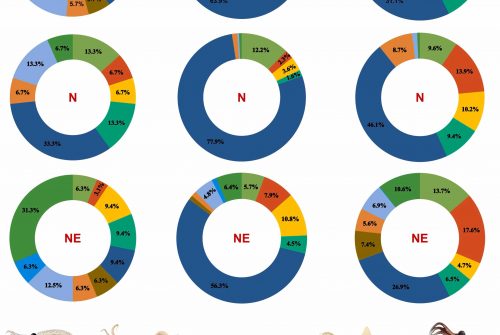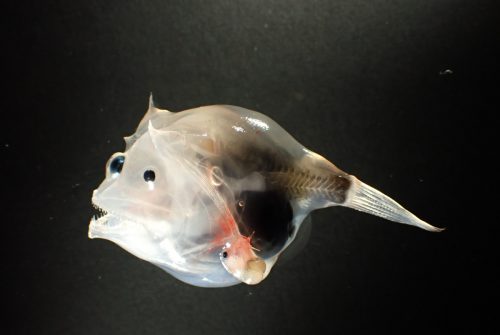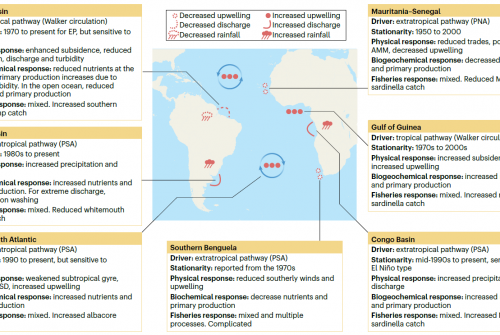
Deep-pelagic ecosystems extend from ocean depths of approximately 200 m to 5,000 m and are home to thousands of species that include fish, crustaceans, squids, salps and cnidarians. These ecosystems, which comprise over 90% of Earth’s biosphere, are out of sight, and often perceived as remote and disconnected from societal concerns. But they are vital for climate regulation, food production and a variety of cultural and economic activities. As global anthropogenic effects extend into deeper waters, a substantial shift in how society, scientists and policymakers perceive and engage with these ecosystems is urgently needed. A social–ecological systems (SES) framework offers a compelling interdisciplinary approach that views ecosystems and human societies as inseparable and interdependent, and emphasizes their dynamic and evolving interactions, which include feedback loops, adaptability and emergent properties. This perspective provides a more realistic and integrated view of these ecosystems, and supports their sustainable management amid ongoing social and environmental change. Here, we argue for the explicit recognition of deep-pelagic ecosystems as distinct, critical and irreplaceable SES.
DOI: doi.org/10.1038/
Reference
Eduardo L.N., Bertrand A. 2025. Deep-pelagic ecosystems should be considered as social-ecological systems. Nature Ecology & Evolution 9, 745-748.







